0902 [0852] Hrs GMT
London
Thursday
08 April 2010.
Editor © Muhammad Haque.
Khoodeelaar! Told Alistair darling so. We also had told Gordon Brown so. That fakery was not on. That there was no credible basis to invoke fakery as a substitute for real responsible decisions on the economy. Micro and macro. Khoodeelaar! The campaign in defence of the inner city ‘deprived’ and deprived east london borough of tower hamlets environment and community against the impact and the effects and the implications of the big business military industrial complex agenda Crossrail scam has been arguing for six years and two months now that ‘Crossrail’ is a scam and that the scam has been crassly contrived by those who are engaged in promoting the interests of big business at the expense of the people and the ordinary environment, the economy. We have chronicled the diagnostic details contemporaneously whenever we have found evidence of the additional crassness by the crassrail contrivers. We have pointed out that the original plot to dig out a significant part of the Brick Lane London E1 area had been inserted as a result of specific bribery and corruption involving the controlling clique in Tower Hamlets Council being recruited to serve as locally sited touts for the takeover brigade of the Big Business MIC agenda. We have shown in the past six years and two months how wrong they were. We have ‘persuaded’ them to scrap the hole scam. But not without also exposing the corruption at the heart of the body politic. We have shown the unreliability of the organised [Ooops! ORCHESTRATED] political parties, the lack of understanding on the parts of those who pose as the duly elected representatives of the local community. And we have shown the shallowness of the publicly funded institutions of ‘British democracy’. We have shown that with sustained arguments and solid evidence, the local people, the local community acting without careeristic aims or similar other fraudulent motives, can expose the shallow ones and defend the community. It is on this basis that we are engaged in monitoring the latest display of election-linked peddling by the crass forces still working as the touts for Big Business plotting to delude deceive and deprive the East End of London.
[To be continued]
SPECIAL REPORT: National Academy for Rail Engineers
Posted: 6th April 2010 | No Comments
Tomorrow’s railway is taking shape. This is the future Birmingham New Street.
WITH the industry facing a shortage of up to 30,000 skilled engineers, the Government has agreed to help fund the launch of a National Skills Academy for Rail Engineering, and a Tunnelling and Underground Construction Academy to be run by Crossrail.
The rail engineering academy, NSARE, which had been strongly backed by transport secretary Andrew Adonis, will receive nearly £3 million of government investment from the Department of Business, Innovation and Skills through the Skills Funding Agency. It has the support of organisations including Network Rail, Transport for London, the Rail Freight Group, the Railway Industry Association, the Association of Train Operating Companies and the professional Institutions — IMechE, ICE and IRSE.
National Skills Academies — there are already 14 others — are led and funded by employers. The Skills Funding Agency says they work with ‘networks of training providers and employers to develop and shape innovative training solutions to meet the immediate and future needs of industry.’
Personal skills passports
A key feature of the new rail engineering academy will be the introduction of a ‘personal skills passport’ for every engineer, which will be recognized throughout the rail industry.
The £3 million from the Skills Funding Agency will match funding from within the rail industry over the next three years to get the academy established. The NSARE will not be based at a single location but will be a ‘hub and spoke’ organisation, according to Gil Howarth — former BR project director, Channel Tunnel Rail Link, and later director, major projects, with Railtrack — who led the funding bid to the former Learning and Skills Council.
Initially, a small HQ will be established in the West Midlands — probably alongside the GoSkills’ team, which oversees the skills council for passenger transport, in Solihull.
Regional centres are planned in Derby as well as in Crewe where pop and rail entrepreneur Pete Waterman – who has argued for some time that government money should be spent on employing and training apprentices, not on funding training agencies and consultants – runs the Railway Heritage Centre and has recently taken on 20 unskilled young people.
A third regional centre serving London and the South East is also planned, but a location has not yet been decided.
However, in addition to the NSARE, a Tunnelling and Underground Construction Academy is to be established in east London at Ilford to be run by Crossrail. It will receive £5 million to develop new courses and qualifications, providing training for up to 1,000 people a year – including ‘at least’ 400 new apprentices, according to Crossrail chairman, Terry Morgan.
‘Steady flow of work for 30 – 40 years’ – Adonis
Launching the new National Skills Academy for Rail Engineering at the Institute of Mechanical Engineers, with 165 industry representatives present, the transport secretary Andrew Adonis said: “We are in an age of railway renaissance. I have been called the ‘thin controller’ and it is my mission to ensure a steady flow of work for railway engineers for the next 30 to 40 years.”
He added: “After Crossrail, High Speed Two will be the next huge railway engineering project, the biggest since the Stephensons and Brunel.”
Lord Adonis said the £3 million from Lord Mandelson’s Department of Business, Innovation and Skills “is seedcorn funding to enable the industry to take responsibility for its training needs.”
He commented: “We have been very bad at investing in training in the railways, and this has been compounded by the breaking up of the industry for privatisation which meant that British Rail’s recruitment and training schemes were emasculated. We must now rebuild the training infrastructure. But it is up to the industry to make a success of it and to supply the engineers needed for the industry’s development in the next 20, 30, 40 years, and to deliver on big projects.”
Over the next four decades ‘huge‘ infrastructure work will be required on the railways, he said.
“We must recreate a sense of excitement such as the Victorians had the first time around when they were building the railways. Now we are going to rebuild the railways the second time around.”
But Lord Adonis was critical of the poor image the rail industry presents to the public – and to young people in particular.
“Our rail industry is still seen as yesterday’s industry, not as tomorrow’s world,” he declared. “We must enthuse a whole generation of school leavers as we re-invent railways for the next 20 to 30 years. This is the right time and we must use Crossrail and High Speed Two to enthuse them.”
Jeremy Candfield, the director general of the Railway Industry Association, which represents suppliers, said the British rail industry now comprised around 190,000 people – 60,000 working for train operating companies, 36,000 for Network Rail, 19,000 with London Underground and 75,000 – 40 per cent of the total – for a multiplicity of supplier companies.
Approximately 100,000 of the current total are professional engineers, of whom only 10,000 work on traction and rolling stock, highlighting the demise of the UK manufacturing industry.
In preparing the case to establish the NSARE, 75 per cent of companies in the rail industry had reported skills shortages, and research had shown 30 per cent more professional engineers are required by 2013 – only thee years away.
There were also major requirements to improve the skills of the existing workforce as the railway was increasingly modernised, said Mr Candfield.
“There are huge pressures growing on the network, as well as huge pressures to reduce unit costs,” he added. In 2006/7 investment by Network Rail, London Underground and Crossrail totalled £5.5 billion, but this was planned to rise to £8 billion by 2013/14. “Where are the skilled resources to cope with this level of activity?” he asked.
Mr Candfield said his quoted investment figures excluded rolling stock – but some large orders are expected for Thameslink and Crossrail – as well as electrification, many overseas projects which demand English-speaking engineers, and High Speed Two.
Gil Howarth, who was programme leader for the bid on behalf of the Railway Industry Association to the Skills Funding Council, said the entire rail industry was only recruiting between 200 and 300 apprentices each year – mostly by Network rail and London Underground.
There were around 500 companies providing training facilities – but only six colleges and universities offered any rail-based training courses.
“In dealing with schools, the industry has been very, very poor,” said Mr Howarth. A recent ‘Big Bang’ exhibition in Manchester aimed at attracting school leavers into engineering careers had been attended by 25,000 young people – yet not one rail industry organisation had been present, he said.
Mr Howarth added that Network Rail has identified electrification as ‘a key problem’ for the company. “There is an urgent need to identify the magnitude of the skills gap,” he said.
Terry Morgan, the chief executive of Crossrail, said ‘at least 400’ new apprentices would be taken on for the project, and Bombardier Transportation said that it would have 100 apprentices undergoing training in Derby, together with 20 graduate trainees, over the next four years.






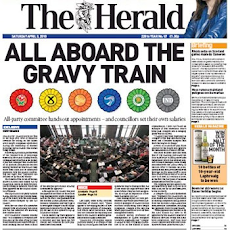
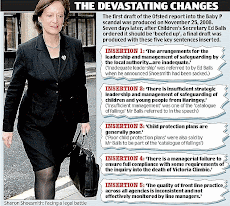

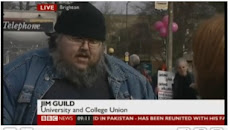
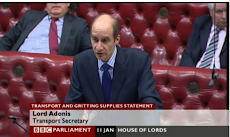





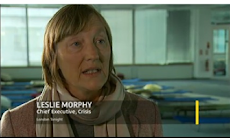



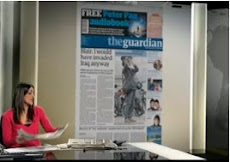

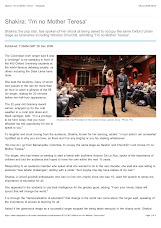
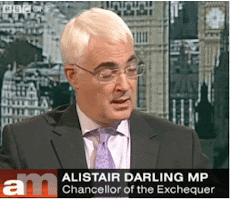
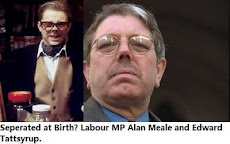

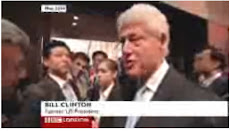
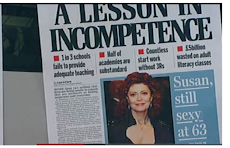

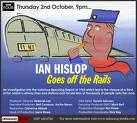




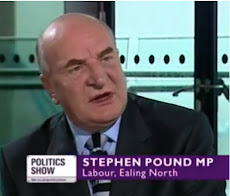

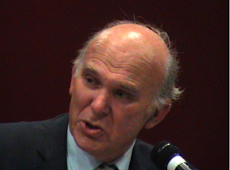


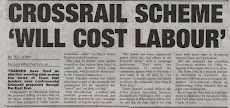



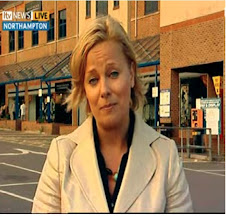
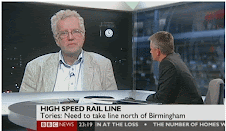
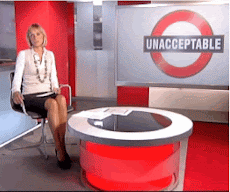
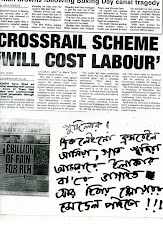

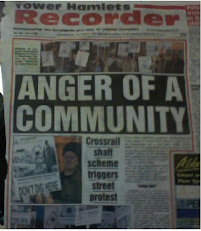

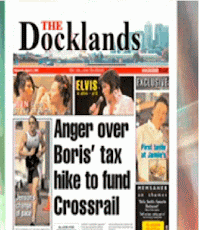


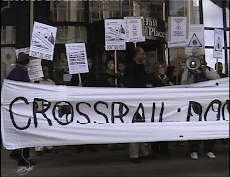

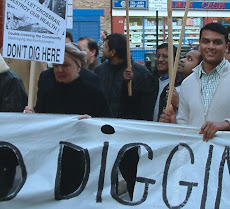

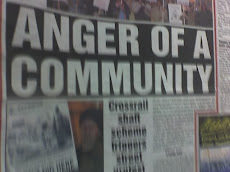

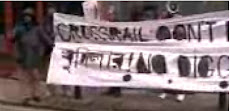
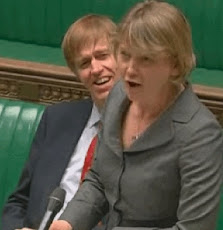

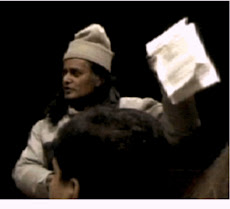
No comments:
Post a Comment